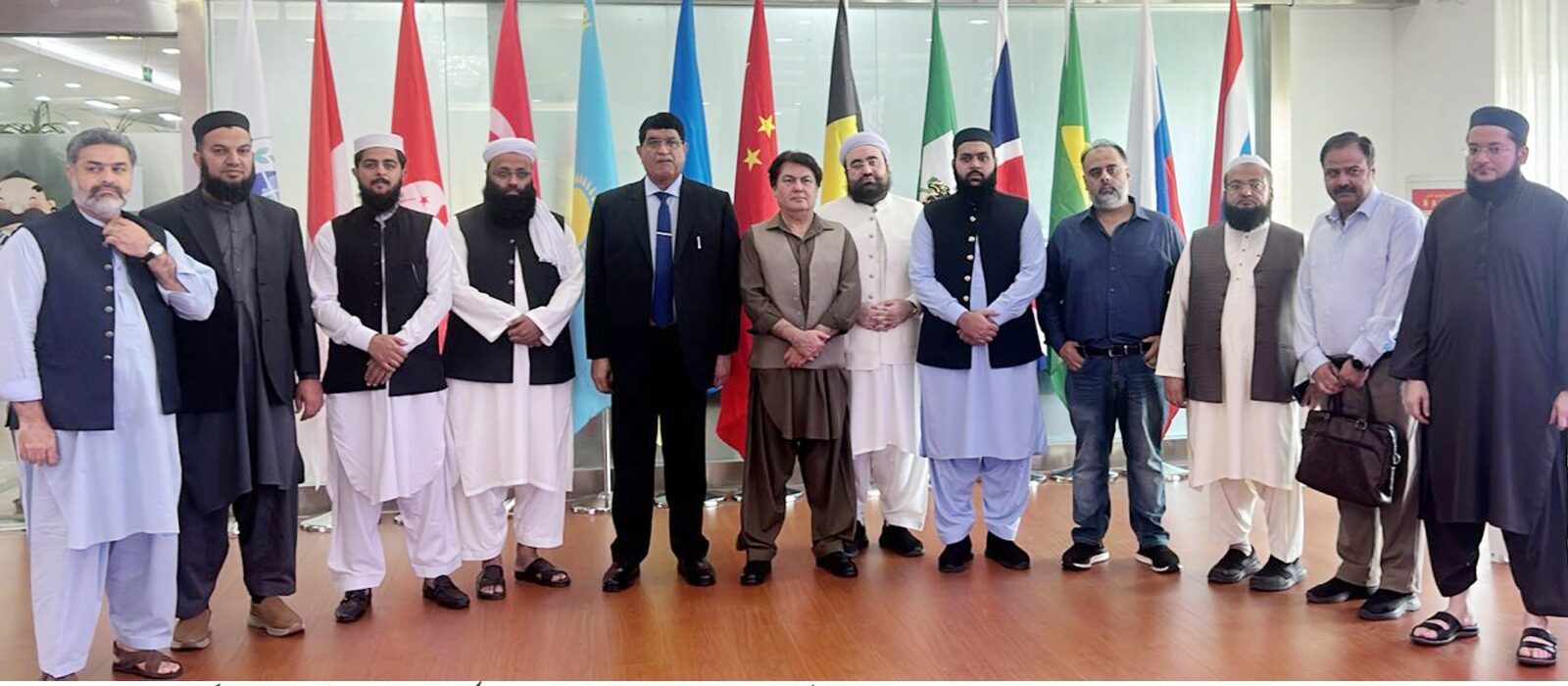 By: Ghulam Hussain Ghazi
By: Ghulam Hussain Ghazi
The political acumen and diplomatic finesse of Barrister Dr Muhammad Ali Saif, Advisor to the Chief Minister of Khyber Pakhtunkhwa for Information and Public Relations, have earned him a distinguished place in the provincial cabinet. His sincere efforts and mastery of international affairs are evidenced by his recent visit to China, where he led a 12-member high-level delegation on behest of the Chief Minister Ali Amin Gandapur. This visit is a milestone for the deepening of Pakistan-China friendship and the region’s geopolitical and economic progress. China, reigning at the pinnacle of the global economy, has emerged as a shining example for the world through its cutting-edge AI technology, agricultural revolution and model of social harmony. Xinjiang, a border province adjacent to Khyber Pakhtunkhwa, holds geopolitical and strategic importance due to its Uyghur Muslim-majority population and cultural diversity. Historically a cradle of trade and culture with Central Asia, it is also a key hub of the China-Pakistan Economic Corridor (CPEC). On the other hand, Beijing, as China’s political and cultural capital, amplifies the significance of this visit.
Undertaken at the invitation of the Chinese Ministry of Foreign Affairs, this visit aimed to strengthen bilateral diplomatic, religious, cultural and economic ties. The delegation visited the historic Shanze Grand Mosque, the Grand Bazaar and the Museum of Counter-Extremism and Terrorism in Urumqi. This museum highlights the terrorist incidents from 2005 to 2015, such as the 2009 Urumqi riots and the Chinese government’s successful strategies based on security, political, cultural and economic reform

s, which have transformed Xinjiang into a more peaceful and developed region.
Barrister Saif praised China’s efforts in restoring peace and fostering economic progress in Xinjiang, calling it a radiant example of regional harmony. He noted that these experiences and observations offer a golden opportunity for Khyber Pakhtunkhwa to learn.
The delegation also visited a high-tech plant company equipped with advanced agricultural technology, where they reviewed methods to enhance agricultural produce through state-of-the-art artificial intelligence and modern irrigation systems. Barrister Saif candidly stated that Pakistan must learn from China’s agricultural revolution, as it holds critical importance for the region’s economic prosperity. Meetings with the Muslim community in Urumqi focused on discussions about religious harmony and interfaith dialogue, aligning with the narrative of “Paigham-e-Pakistan.”

Following the successful visit to Xinjiang, the delegation arrived in Beijing, where they met with officials at China’s first official Jamia Masjid and the Islamic Association of China. The Association’s chairman informed them that China hosts 35,000 Masjids and 55,000 imams, with 72 Masjids in Beijing alone.
Barrister Saif introduced “Paigham-e-Pakistan,” explaining that it is a national narrative launched in 2018, supported by 6,000 religious scholars, aimed at promoting religious harmony, eradicating extremism and fostering peace, thereby highlighting Pakistan’s positive image globally. The delegation offered free education and accommodation in Pakistan’s religious seminaries for Chinese students, paving a new path for mutual cooperation.
This visit holds the potential to be a game-changer for Khyber Pakhtunkhwa. The delegation deemed Xinjiang’s high-tech agricultural technologies pivotal for the province’s agricultural economy. AI-equipped irrigation and farming methods will enhance agricultural productivity and food self-sufficiency. Similarly, the cultural similarities between Xinjiang’s Muslim heritage and Khyber Pakhtunkhwa’s cultural legacy will boost religious and cultural tourism, strengthening the local economy. Collaboration with China’s educational and religious institutions will provide the province’s students and scholars with modern educational programs and training opportunities. In the context of CPEC, this visit will open new avenues for investment and industrial cooperation, creating fresh employment opportunities. Delegation members praised Barrister Saif’s leadership, describing the visit as a cornerstone for the province’s social and economic development.
This visit marks the dawn of a new era in Pak-China friendship. From CPEC to education, agriculture, health and security, both countries are engaged in deep cooperation at every level. Barrister Saif termed it a new dimension of Pakistan-China friendship, offering Pakistan a golden opportunity to learn from China’s experiences and refine its policies.
This visit will not only strengthen religious and cultural ties between the two neighboring countries but also prove to be a significant step toward regional economic prosperity and stability. Under Barrister Saif’s leadership, this visit is a living testament to the depth and global significance of Pak-China friendship.

